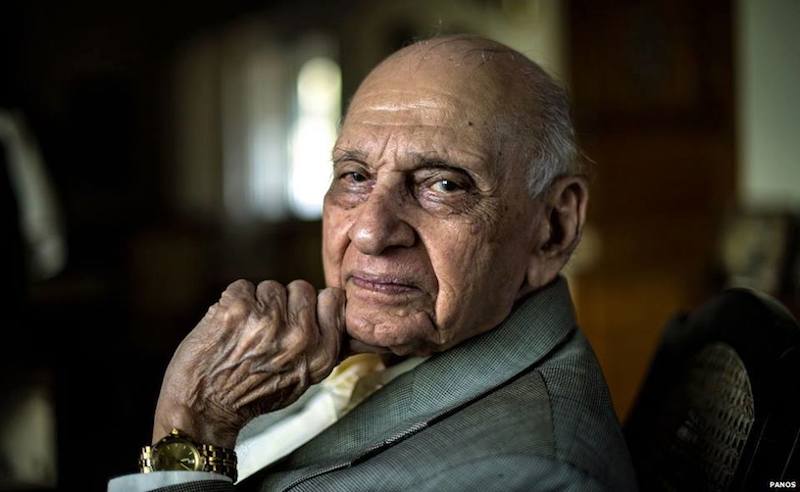
Mahinder Watsa is a 92-year old gynaecologist and sexologist, famous for his Ask the Sexpert column in Mumbai Mirror for the past 10 years, and is an author of It’s Normal, a book that explains human sexual anatomy, defines complex notions such as love, partnership and consent, and takes on popular myths. He has spent a lifetime dispelling sexual ignorance and is known for his wry humour and blunt answers. In this e-mail interview, Shaifali Agrawal, who volunteers with TARSHI, asks him a few questions about sexuality and relationships. Dr Watsa responds in his characteristic pithy fashion.
Shaifali: You have been writing sexuality advice columns for more than fifty years now. Have things changed? If so, how?
Dr Watsa: Today the questions are very open: for example, a person having oral sex with his male partner wants to know if, instead of using a condom, he could swallow the semen.
Shaifali: Do more women or men write in? What are the main differences in what they want to know or how they ask their questions?
Dr Watsa: About 70% of the queries are from men. Men continue to be dissatisfied with what they have or they just ask their problem. Women have also come out in the open and ask questions. For example, a woman asked whether she could have intercourse with her dog as she had fallen in love with him.
Shaifali: Are younger people more open to exploring sexuality now, than say ten years ago?
Dr Watsa: Most definitely they are. At 13 years of age, and even younger, they have access to porn. I have come across many instances of 13- to 15-year-olds having sex.
Shaifali: Have attitudes towards sexuality changed?
Dr Watsa: Women, particularly, are more open to having sexual intercourse as they now think it is their right…
Shaifali: Your style is humorous and witty and at times also dry and blunt when someone is asking you something silly. Is it purposely so? Do you sometimes get irritated by the questions?
Dr Watsa: My style is to scan the question and give the answer that comes to my mind.
Shaifali: In your view, how important is sex within a relationship?
Dr Watsa: It’s a God-given gift to help couples enjoy their life together.
Shaifali: How would you say the country’s social mores of talking about sexuality in hush-hush tones impact relationships? What do you think about the moral policing in Kerala and other states in the past few years which have led to incidents such as a mob killing a 26-year-old for having an affair with a married woman, or a police detaining a male and a female colleague for travelling together at night, etc.?
Dr Watsa: Nothing can stop the tide of change. The sooner we look at sexuality, how it helps, and accept its good parts, the more comfortable and happier young people will be.
Shaifali: Do you believe there is a need for comprehensive sexuality education (CSE) for kids in schools? When should it start?
Dr Watsa: CSE would be of no use until parents and teachers are involved. There are parts of sexual health that children can be educated about as early as from 3 to 10 years of age; for example, hygiene.
Shaifali: Do you think sexuality education ever ends? Meaning, can 70-, 80-, 90-year-olds benefit from it?
Dr Watsa: In my practice, I have seen most couples ranging from 60 to 80 years getting their information from the media, TV and the Net.
Shaifali: If there was only one thing you could say to people about sexuality, what would it be?
Dr Watsa: Happiness through sexual health.
—
Image credit: The American Bazaar